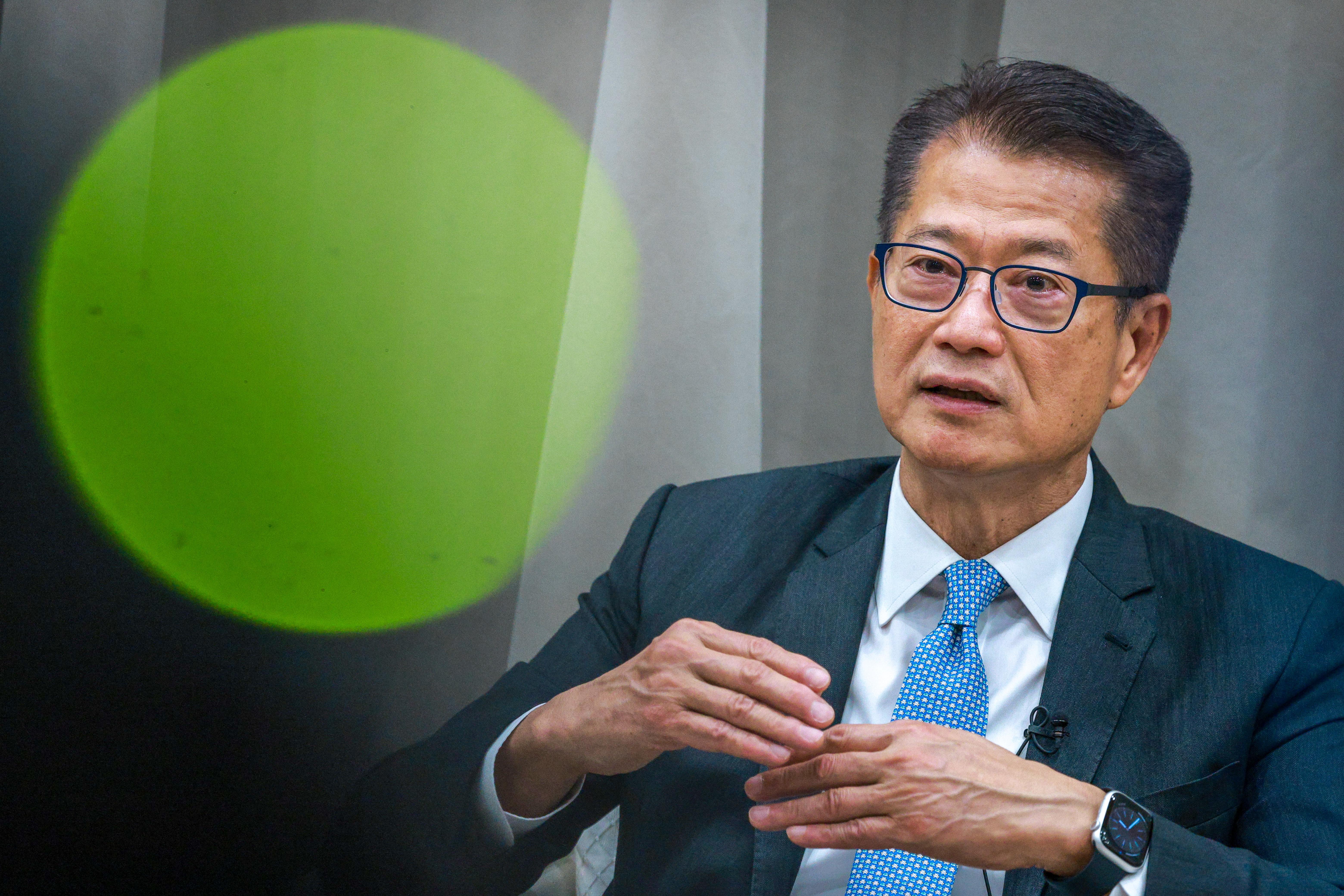 Financial Secretary Paul Chan Mo-po during an interview he granted to China Daily. At Hong Kong Central Government Offices on June 27, 2023. (ANDY CHONG / CHINA DAILY)
Financial Secretary Paul Chan Mo-po during an interview he granted to China Daily. At Hong Kong Central Government Offices on June 27, 2023. (ANDY CHONG / CHINA DAILY)
The Hong Kong Special Administrative Region government carried out negotiations over six months with over 150 firms — ranging from cutting-edge startups to large-scale corporations — through a newly established program aimed at attracting strategic enterprises from around the world.
Finance Secretary Paul Chan Mo-po made the remarks at a news conference on Tuesday. “The negotiation progress has been quite smooth so far,” he said. Hong Kong is currently at a crucial juncture in transforming its economic structure. Over the past year, the sixth-term Hong Kong SAR government has introduced several measures to diversify industries and create new growth engines for the city’s economy, such as setting up the Office for Attracting Strategic Enterprises.
Hong Kong is currently at a crucial juncture in transforming its economic structure. Over the past year, the sixth-term Hong Kong SAR government has introduced several measures to diversify industries and create new growth engines for the city’s economy, such as setting up the Office for Attracting Strategic Enterprises
Under the Office for Attracting Strategic Enterprises, introduced late last year, the government has directed efforts to lure companies mainly from four categories: life and health medical; biotechnology; artificial intelligence and data science; and financial technology. Chan said companies in some of these fields have already held talks with officials.
He noted that the city has attracted a number of innovative tech companies focused on third-generation internet technologies. “Approximately 150 companies have located to Cyberport over the past year,” he said.
ALSO READ: Yau: HK economy on right track as global, mainland ties deepen
Chan said he expects the companies that the government aims to attract will contribute to Hong Kong’s economic growth, provide more job opportunities, and drive the development of new technologies sectors.
The newly established office, designed to woo leading technology and innovation firms globally, offers a one-stop facilitation service program to employees of target enterprises, including assistance with visa applications and educational arrangements for their children.
In the past few months, the program, in collaboration with the Immigration Department, has handled more than 20 cases related to talent programs or visa facilitation.
Chan said that Hong Kong is also attractive as a hub for international talent, particularly in light of recent geopolitical changes that have led to an influx of overseas Chinese engineers and scientists.
The SAR government has set a goal of attracting a minimum of 1,130 companies to establish or expand their operations in the city from 2023 to 2025.
READ MORE: HK eyes closer cooperation with Zhejiang, Fujian
Earlier this month, the government estimated it will reach out to around 300 strategic enterprises by the end of 2023.
The finance chief also highlighted the various advantages of the SAR that can aid these enterprises in raising funds and accessing both the Chinese mainland and overseas markets.
“Hong Kong’s stock market is competitive in terms of IPOs for fundraising,” he said. Hong Kong ranked third among the world’s largest fundraising destinations in 2022, as 75 IPOs brought the year’s total funds raised to $12.69 billion. In the first half of this year, the international financial center saw 30 IPOs, an increase of 11 percent compared with the first half of last year.
Moreover, Chan said, “Our venture capital funds are ranked the top in Asia, while our private equity fund investments are ranked second. As a result, companies in the above four categories will find it convenient to raise funds when they set up in Hong Kong.”
According to government data, over 120 open-ended fund companies had been established in Hong Kong as of February, including 104 private funds.
READ MORE: HKU signs MoU with Fudan University, University of Sydney
Chan also discussed the HKD RMB Dual Counter Model, which was launched by the Hong Kong Stock Exchange this month. The program enables investors to use yuan to buy and sell stocks of 24 Hong Kong-listed companies. These stocks account for nearly 40 percent of Hong Kong’s market capitalization.
Chan said that the performance so far has been within expectations, with the volume “not being particularly high”.
He struck an upbeat note on the program’s outlook. “The volume will pick up. Take the Connect arrangement (The Shanghai-Hong Kong Stock Connect)as an example; it was first started in 2014. … Up till now, it has gone up by more than 20 times on average.”


